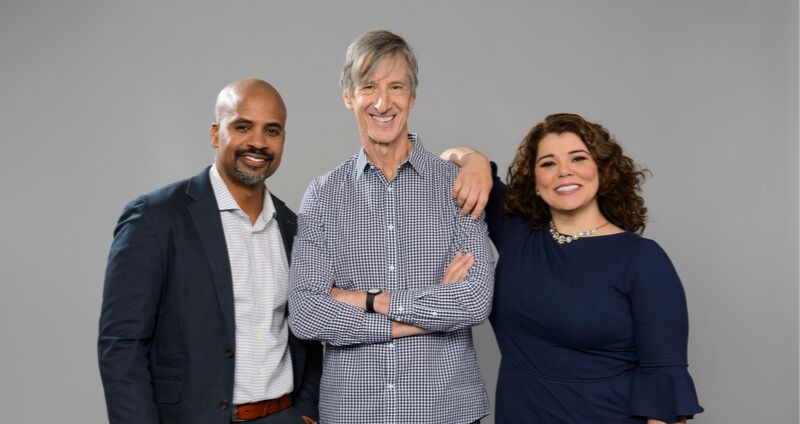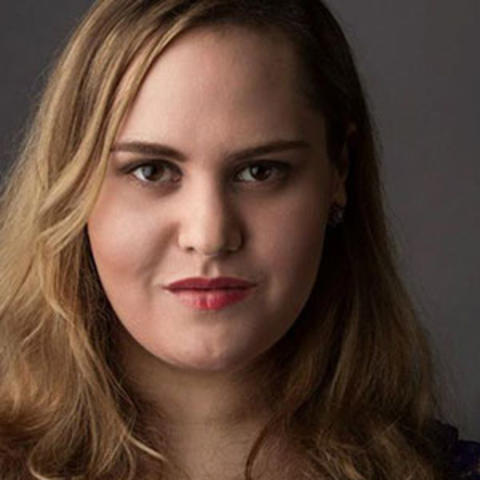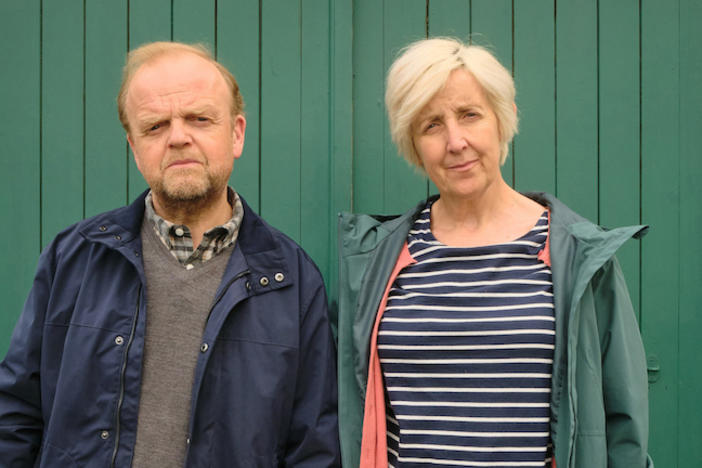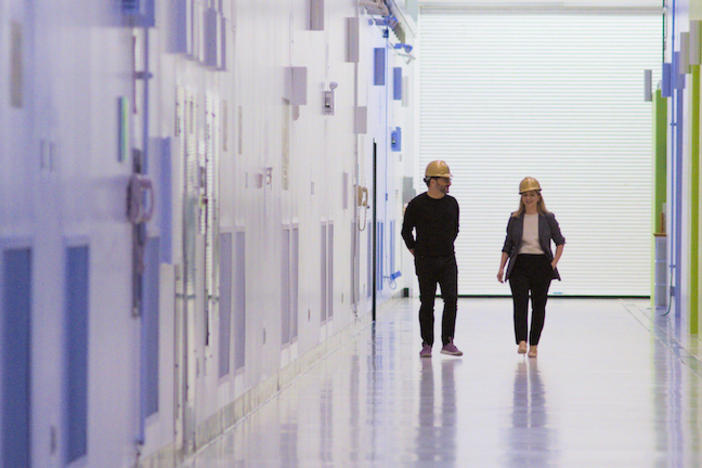
Section Branding
Header Content
Q&A With The Hosts Of "Retro Report" On PBS Masud Olufani And Celeste Headlee With Contributor Andy Borowitz
Primary Content

RETRO REPORT on PBS, a new one-hour magazine format series hosted by journalist Celeste Headlee and artist Masud Olufani and featuring New Yorker humorist Andy Borowitz, premieres Monday and Tuesday, October 7-8, 9:00-10:00 p.m. ET (check local listings) on gpb.org, pbs.org and the PBS App. The series offers viewers a fresh perspective on current headlines, revealing their unknown — and often surprising — connections to the past.
In today’s 24-hour news cycle, with breaking headlines, all-news networks and online outlets constantly competing for attention, RETRO REPORT on PBS aims to widen the discussion, revealing the story behind the story, providing new insights into how today’s events have been shaped by the past. Each episode will explore four distinct stories, closing with “Now It All Makes Sense,” a special segment featuring the wit and wisdom of author and comedian Andy Borowitz.
Celeste, Masud and Andy recently answered questions about their experiences during production.
Through the lens of RETRO REPORT on PBS, how can learning about the past help us understand the present?
Andy Borowitz: We’re so overwhelmed by the 24-hour news cycle that it sometimes feels like the sky is falling. By taking a step back in time and looking at the events that have shaped our present, things make a little more sense.
Celeste Headlee: How can we learn about what's happening today without knowing what brought us here? Can you appreciate or understand Hamlet's death if you don't understand why he was fighting? Unless we know history, we may not recognize things that have happened before. We may not realize what solutions have been tried before, what worked and what didn't.
Masud Olufani: The past provides context for our present by revealing where we have been, and through that revelation, it helps us acquire a deeper understanding of the contemporary moment. Our choices are set in context by the history that shaped them.
Which story in the show have you found the most surprising, intriguing or relevant?
Masud: I really enjoyed the story on Colin Kaepernick. It linked his protest to that of the 1968 U.S. track and field athletes, who protested racism in American society — a move which ultimately led to them being thrown off the Olympic team. The story dispelled the myth that Kaepernick's protest was without precedent.
Andy: I did a story from my youth in Cleveland, Ohio, about the time in 1969 that the Cuyahoga River caught on fire. I learned a lot about the incident — for example, that the river had actually caught on fire 12 times before and was not even front-page news in Cleveland! But the incident led to the founding of the EPA. As for its relevance to today: the EPA has loosened regulations in recent years and, lo and behold, our water is catching on fire again, thanks to fracking. So the question posed by my segment is: do we really learn from the mistakes of the past?
Celeste: I really loved the story about garbage. The Mobro garbage barge was floating off the East Coast in the 1980s, but it led almost directly to the current views of recycling. It's a funny story and ironic, in many ways, but it's also very important context for the modern debates over trash, especially the concerns about plastic in the ocean.
WYSIWYG: EMBEDDED VIDEO
What has been your favorite part about working on RETRO REPORT on PBS?
Celeste: I really enjoy having the opportunity to dig into the roots of our current headlines, rather than simply following every tiny development that's been announced over Twitter. The pace of news has increased exponentially since the advent of 24-hour cable news and the internet. It's a treat to be able to slow down just a moment, take a breath, and uncover the context behind the headlines and the chain of events that brought us from there to here.
Masud: I love working with the cast and crew. Everyone is so professional and genuinely kind; it makes for a fun, relaxed work environment.
Andy: To help produce my segment, we hired two very talented women from “The Daily Show.” Working with them has been the best collaboration of my career.
WYSIWYG: EMBEDDED VIDEO
Has the perspective of this show changed the way you think about and consume the news?
Andy: It really has! Now, whenever I see a news story, I wonder, “Could we do a RETRO REPORT segment about that?” It’s led me to wonder about the historical antecedents lurking behind just about everything.
Masud: It's definitely got me thinking more about the historical events that shape our lives. Today's news is better understood when we reflect on the impact history has had on the way we see ourselves and one another.
Celeste: I think I'm much more careful about reacting to headlines. I'm much more careful before assuming that a current event is unprecedented or entirely new. History repeats and repeats. I'm continually reminded of that now.
If you could describe what makes RETRO REPORT on PBS different from any other news and public affairs show in one word or hashtag, what would it be?
Masud: Revelatory.
Celeste: Thorough.
Andy: I think #NowItAllMakesSense says it all!
WYSIWYG: EMBEDDED VIDEO
RETRO REPORT premieres on GPB Monday, October 7 at 9 p.m. and will air Monday and Tuesdays at 9 p.m. throughout October 2019. We encourage you to tune in live or stream through GPB Passport!
Secondary Content
Bottom Content





